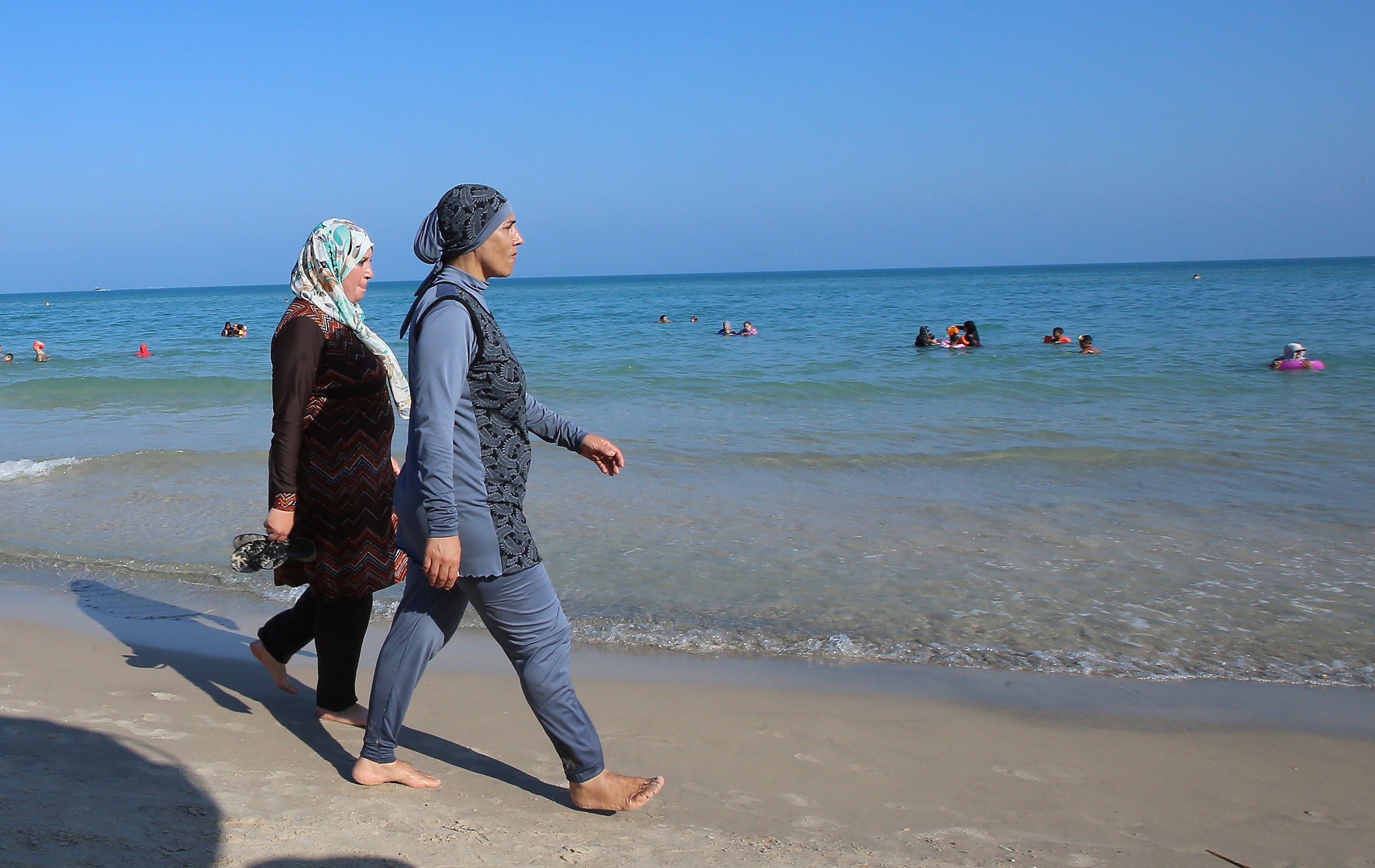France burkini ban challenged in country’s top court
Marine Le Pen has called the burkini the ‘clothing of Islamist propaganda’

France’s top court is set to deliver a ruling on the controversial burkini ban after hearing an appeal by the city of Grenoble to allow the bathing suit in public pools.
Grenoble formally allowed women to wear the full-length swimwear in state pools in May, 10 years after a local ban on the burkini was introduced in several French cities. But not without a grim warning from the interior minister that he would work to block the move.
The decision, said minister Gérald Darmanin, was an “unacceptable community provocation, contrary to our values” and went against French laws on secularism. Darmanin was the minister who said Liverpool fans posed a public disorder threat after last month’s chaos at the Champions League final in Paris.
Now, Grenoble has taken the issue to the Council of State.
France’s 1905 secularism law allows religious symbols in public, including in swimming pools, so long as they did not get in the way of hygiene and safety.
But the burkini dispute in France goes beyond hygiene and safety and touches upon some of the country’s biggest societal struggles, including religious inclusion. The swimwear covers the entire body and is mostly worn by Muslim women.
“We’re not creating a new right, we’re going back to pre-2012 rules,” Grenoble mayor Eric Piolle said at the hearing.
In 2021 several female activists were fined for wearing burkinis to a public pool in Grenoble in an act of defiance. Grenoble city hall said the women had blocked access to the pool and were removed and banned from entering the facility for two months.
Last month’s update to the rule included going topless for women and wearing shorts instead of Speedos for men, both of which were banned in public pools. The Council of State on Tuesday said it would deliver its verdict “as soon as possible” but did not specify a date.
The use of the burkini garnered widespread international interest in 2016 when some 30 mayors across the country banned the swimsuit in public pools. The ban fuelled a heated debate on Islam just one month after Isis claimed responsibility for an attack in Nice that killed 87 people.
Unlike the full-face veil which was banned across France in 2011, there is no nationwide ban for the burkini, instead it is prohibited in public pools by some local governments.
The mayor of Cannes David Lisnard was the first to issue the ban. At the time Lisnard called the burkini the “uniform of extremist Islamism” and argued that it disrespected “good morals and secularism”.
Far-right leader Marine Le Pen who has often used Islamophobic rhetoric to further her political agenda promised to ban the swimsuit and called it the "clothing of Islamist propaganda".
“Contrary to liberal principles of personal choice and women’s autonomy over their bodies, the French government wants to collectively punish Muslims by banning hijabs and burkinis,” said Sahar Aziz, a law professor and author of The Racial Muslim.
“Claims that such bans protect French laicite disingenuously disregard a French Muslim woman’s right to choose that she does not want to expose her body or hair in public spaces, including swimming pools and beaches - similar to any French woman’s right to choose whether to wear a skirt, pants, shorts, or sleeveless shirt,” Aziz told The Independent.

But not everyone agrees. Speaking on French parliamentary TV channel Public Senat, writer Razika Adnani told viewers that the veil was “established before Islam… to discriminate against women”.
The creation of the burkini as we know it dates to the early noughties and is often attributed to Aheda Zanetti, an Australian designer of Lebanese descent who started creating sportswear for Muslin women in 2004 upon seeing her niece struggling to play netball comfortably with her headscarf.
“I did some research, and I did not find suitable outfits for sporty and modest women,” Zanetti told French newspaper Le Monde at the height of the ban controversy in 2016.






Join our commenting forum
Join thought-provoking conversations, follow other Independent readers and see their replies
0Comments